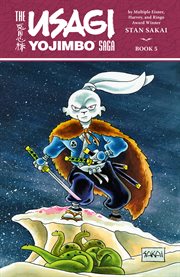Review by Booklist Review
Make way for another mystery series set in feudal Japan. Laura Joh Rowland's Sano Ichiro series has the late-seventeenth and early-eighteenth centuries pretty well staked out, and I. J. Parker's Sugawara Akitada's beat is the eleventh century. Hiro, the ninja-sleuth in Spann's debut, lives in the sixteenth century. A samurai is murdered not just any samurai but also a police officer. The likely culprit, a young teahouse entertainer, claims she didn't kill the man. But the victim has some highly placed relatives, including his instantly dislikable policeman son, and Hiro wonders if he'll have enough time to prove the girl's innocence before the sentence is passed. Hiro is an intriguing character; unlike Ichiro and Akitada, he isn't an official investigator. However, his ostensible job, as protector to a Jesuit priest, gives him the opportunity to look into the policeman's murder (while Father Mateo, the priest, serves as a sort of beard and sidekick). Different enough from Rowland's and Parker's popular series and set in a mostly untapped period of Japanese history, the book should do well with fans of those writers.--Pitt, David Copyright 2010 Booklist
From Booklist, Copyright (c) American Library Association. Used with permission.
Review by Publisher's Weekly Review
Spann matches period detail with a well-developed whodunit plot in her promising debut, the first in a new series set in 16th-century Japan. Fr. Mateo Avila de Santos, a Portuguese Jesuit missionary, and Matsui Hiro, the shinobi (or ninja) dedicated to protecting the priest's life, come to the aid of Sayuri, a female entertainer of 16, after she's accused of fatally stabbing retired general Akechi Hideyoshi in a teahouse. Sayuri, a recent Christian convert, was found beside the general's corpse with blood on her kimono. The victim's policeman son, Nobuhide, vows to execute Father Mateo and the girl if he and Hiro can't prove Sayuri's innocence within two days. Spann is especially good at showing how the Jesuit learns to ask questions indirectly to gain information the Japanese witnesses would not otherwise provide. Spann's not yet at the level of Japanese historical mystery authors I.J. Parker and Laura Joh Rowland, but she's well on her way. Agent: Sandra Bond, Bond Literary Agency. (July) (c) Copyright PWxyz, LLC. All rights reserved.
(c) Copyright PWxyz, LLC. All rights reserved
Review by Library Journal Review
When a Kyoto samurai is murdered at a teahouse, the victim's son (a police commander) demands quick resolution. He is ready to convict and execute Sayuri, the young entertainer found at the scene, and who happens to be a Christian convert. But her priest, Father Mateo, negotiates two days to prove her innocence. Matsui Hiro, a master shinobi, or ninja, is responsible for protecting the Portuguese Jesuit priest, and since Father Mateo feels obligated to save Sayuri, Hiro moves into detective mode. Hiro initially observes details that indicate the killing was personal, but then he learns that the teahouse owner destroyed financial records after the crime. Further, the victim was not universally loved; his family includes an estranged brother, a widow who is also a Christian convert, and a defiant samurai daughter. Time is running out for Sayuri. VERDICT While Spann demonstrates admirable attention to detail in her ninja detective debut, it's the contemporary tone of her prose that makes this intriguing 16th-century historical so accessible. Laura Joh Rowland fans will like this book for the time period, but the "buddy tone" is reminiscent of Ian Morson's "Nick Zuliani" series and Gary Corby's "Athenian Mysteries" series. (c) Copyright 2013. Library Journals LLC, a wholly owned subsidiary of Media Source, Inc. No redistribution permitted.
(c) Copyright Library Journals LLC, a wholly owned subsidiary of Media Source, Inc. No redistribution permitted.
Review by Kirkus Book Review
In 16th-century Japan, a ninja must solve a murder or a priest will die. Matsui Hiro, a shinobi or master ninja, has been assigned to protect the Portuguese priest Father Mateo while he lives in Kyoto and a merchant whose specialty is guns. When Sayuri, a Christian teahouse entertainer, is accused of murdering the samurai Akechi Hideyoshi, Father Mateo insists that she is innocent. Akechi's hotheaded, vengeful son Nobuhide arrives ready to kill Sayuri, but Hiro talks him into allowing them three days to prove her innocence. If they fail, both the girl and the priest will die. It's not that difficult, Hiro soon learns, to find someone who wanted Akechi dead. Akechi's brother Hidetaro, who's in love with Sayuri, is slowly paying the price to remove her from the teahouse. Hideyoshi's daughter, who's been brought up as a samurai, now inherits her father's estate, much to the disgust of Nobuhide. There is also a political angle, for warring factions are eager to take over the Shogunate, and spies abound. Indeed, Hiro reflects, he is a spy himself. As he draws on his many resources, he relies as well on the insight he gains from Father Mateo to solve the complex murder. Spann's debut provides an absorbing look at Japanese culture along with a sharp mystery. First of a planned series.]] Copyright Kirkus Reviews, used with permission.
Copyright (c) Kirkus Reviews, used with permission.

